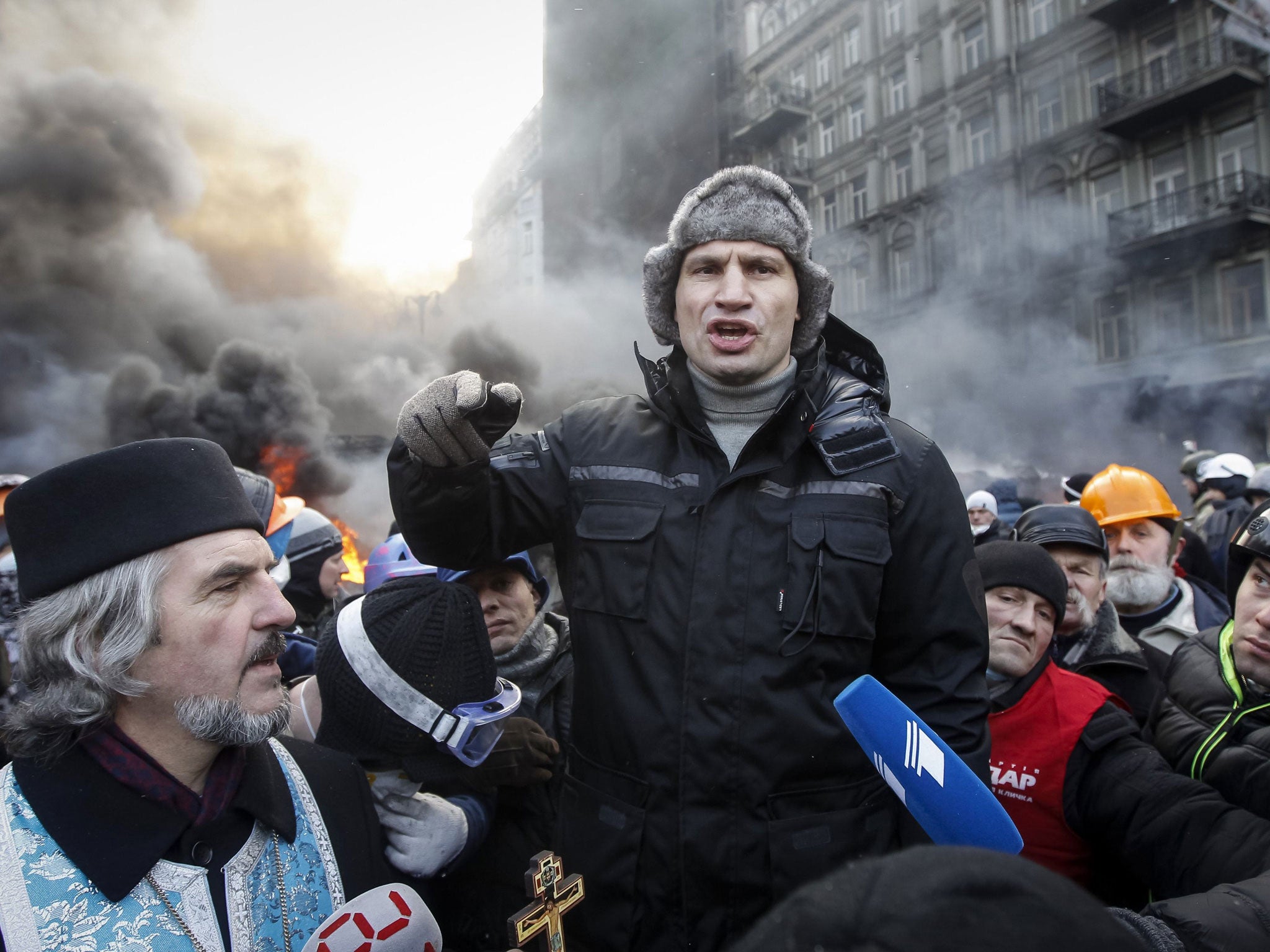Ukraine protests comment: Vitali Klitschko has emerged as a real contender in the fight for a political solution to the crisis
We must assume things will get worse before they get better

Your support helps us to tell the story
From reproductive rights to climate change to Big Tech, The Independent is on the ground when the story is developing. Whether it's investigating the financials of Elon Musk's pro-Trump PAC or producing our latest documentary, 'The A Word', which shines a light on the American women fighting for reproductive rights, we know how important it is to parse out the facts from the messaging.
At such a critical moment in US history, we need reporters on the ground. Your donation allows us to keep sending journalists to speak to both sides of the story.
The Independent is trusted by Americans across the entire political spectrum. And unlike many other quality news outlets, we choose not to lock Americans out of our reporting and analysis with paywalls. We believe quality journalism should be available to everyone, paid for by those who can afford it.
Your support makes all the difference.When Ukraine’s protests started on 21 November, the main issue was Europe. Today it is democracy. Yet the issues are difficult to separate. Under four presidents, Ukraine defined itself as a European state. EU integration brought out differences in Ukraine, but unlike Nato integration, it never polarised the country.
When Viktor Yanukovych, the candidate of the Russophile east, came to power in 2010, the EU was his first port of call. His abrupt turn away from the association process he initially embraced struck a raw nerve in an already embittered country.
Ukraine has also defined itself as a democratic state. In practice, Ukrainian democracy has been corrupted by the generic flaw of all post-Soviet states: the fusion of power and money. Nevertheless, politics in Ukraine has been pluralistic, vibrant and, like civil society, uncensored, uninhibited and relatively tolerant.
The law of 16 January, which challenges fundamental rights of association, speech and assembly, has not only overturned the constitution but the social contract itself.
In this entire dynamic, Mr Yanukovych has been driven by the logic of his objectives and methods. He has pursued power for the sake of it. His policies have enriched corporate raiders, the casino culture and the so-called Family. At the same time, they have choked off national revenue, dried up investment and pushed Ukraine to the brink of default. By the eve of the Vilnius summit, this handed Russia a trump card, and Vladimir Putin played it.
The radicalisation of today’s protests is a natural response to the radicalisation of power. It is also a response to the perceived ineffectiveness of Ukraine’s divided opposition. But this perception might be changing.
Within the past few days, Vitali Klitschko has begun to look like a national leader. Unlike the intellectually radiant Arseniy Yatsenyuk (leader of the Tymoshenko bloc), he is not tarred by failures in power; unlike Oleh Tyahnybok, leader of the Freedom Party (Svoboda), he does not arouse the phobias of the Russian-speaking east and south. Mr Klitschko’s message has been clear: defend the Maidan, but fight for a political rather than armed solution.
That message might have wider resonance than the gruesome imagery of protest suggests. Every forceful suppression of violent protests by the authorities has brought 10 times the number of peaceful protesters back on to the streets. Moreover, force is not unlimited. There are only a few thousand Berkut (riot police) in the country. Only a small number of Ministry of Interior gendarmerie (internal troops) are fit for purpose. Despite Mr Yanukovych’s sacking of the Commander of Ukrainian Ground Forces, the Minister of Defence has reiterated that the use of the army in internal conflicts is unconstitutional.
Realism has not been the defining theme of Mr Yanukovych’s tenure. He is a man whose political instincts were acquired in a merciless and unscrupulous world. He is reliant on a narrow circle of narrow thinkers. It is only prudent to assume that things will get worse before they get better. But it is possible, even probable, that they will get better, and we would do well to ask (in Europe as well as Ukraine) how to strengthen this probability.
James Sherr is an associate fellow of Chatham House, and author of ‘Hard Diplomacy and Soft Coercion: Russia’s Influence Abroad’.
Join our commenting forum
Join thought-provoking conversations, follow other Independent readers and see their replies
Comments